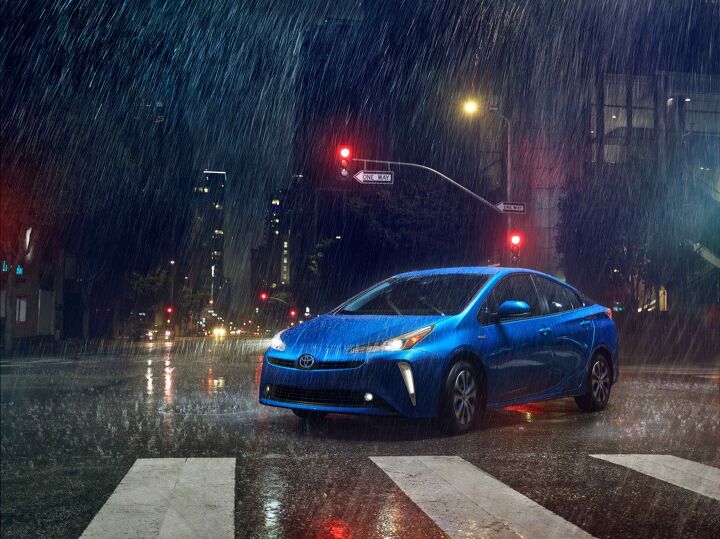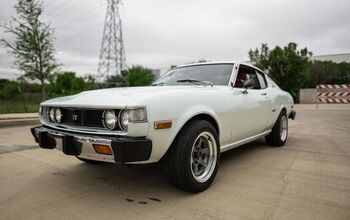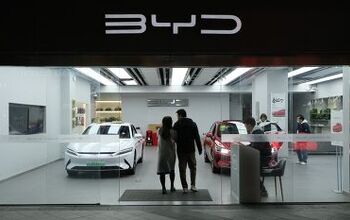Toyota - the Non-EV Brand People Assume Is an EV Brand

Confusion still reigns in the minds of auto consumers, especially when it comes to the murky world of electrification. Past studies have shown that years of misleading terminology and boasting about the capabilities of hybrid and plug-in hybrid vehicles resulted in a public that knew little about the changing auto landscape, or what a hybrid car even does.
“What will happen when my hybrid’s battery depletes?” is a question too many people still ask themselves.
The same murkiness is at play in a recent study by Cox Automotive, in which we learn that Toyota has earned a reputation it doesn’t deserve.
Cox surveyed some 2,503 consumers and 308 franchised dealers to pinpoint barriers to electric vehicle ownership. Consumer expectations were also on the must-find list. The study — the first in a four-part series — is full of useful data on the driving styles and associated costs of various age demographics, as well as the respondents’ attitudes.
The consumer group included those who already own an EV and those looking to buy, as well as those with no intention of kicking internal combustion to the curb. Go figure, the vast majority (83 percent) of so-called “non-considerers” placed range anxiety at the top of their gripe list, with cost (70 percent) a runner-up. For those who’d consider an EV purchase, cost topped the list of ownership barriers, with 77 percent perceiving initial costs as being more than that of a conventional car.
Nothing shocking here. As battery prices drop and range expands, EVs are slowly becoming more viable in terms of cost and driving range, but they’re still years away from being on par with ICE-powered vehicles. The culling of small cars and big boosts to both standard safety equipment and fuel economy has elevated an ICE vehicle’s average selling price at a rate double that of EVs.
What is surprising, at least for those who assume the public is well-versed on all things automotive, is how the respondents ranked automakers on the EV file. Essentially, this crowd was asked which brands spring to mind when thinking EVs. As Cars Direct noted, Toyota comes in at No. 2, right behind first-ranked Tesla. While some 81 percent of respondents mentioned Tesla, an automaker which has never sold a non-EV vehicle, some 52 percent listed Toyota.
Toyota sells a great number of hybrid vehicles (the Prius and RAV4 Hybrid, to name a couple of top segment sellers), as well as a lone plug-in hybrid (Prius Prime), but it currently fields exactly zero electric vehicles. The limited-market Mirai powers itself solely by electricity, but an on-board hydrogen tank and fuel cell converts that fuel to electric current. No giant battery pack needed, no plug to be found.
It looks like Toyota’s hybrid game has made it a major player in the EV field, if only in people’s minds.
Automakers who put the money and effort into building a viable, lower-cost EV fared worse in the recognition test. Only 47 percent of respondents mentioned Chevrolet, seller of the 248-mile Bolt and, until recently, the “extended range electric vehicle” Volt.
Nissan fared worse. Despite selling the all-electric Leaf — a car now well into its second generation — since the beginning of the decade, only 42 percent mentioned Nissan. Ungrateful bastards, a brand loyalist might say.
Toyota was a reluctant late entry in the “all Americans will want an EV” game, prefering to offer hybridized versions of its existing models for not that much more money. That strategy’s still top of mind. From an environmental and cost perspective, it’s a solid plan, but Toyota knew it couldn’t hold out forever. With its rivals promising Big EV Things in the coming decade, Toyota hauled itself aboard the bandwagon.
Six electric vehicles are incoming from Toyota between 2020 and 2025, but brand perception is not something it needs to lose sleep over.
[Image: Toyota]

More by Steph Willems
Latest Car Reviews
Read moreLatest Product Reviews
Read moreRecent Comments
- ToolGuy "The mechanics at my local shop in West Seattle are all wishing they had room in their driveways to buy it and they say it has a lot of life."• Here is how you know your mechanic really wants to buy your vehicle: Your mechanic buys your vehicle.
- ToolGuy I no longer listen to music while driving; I am all about the TTAC Podcast.
- ToolGuy I predict this will do well. (And the upgraded hybrids to follow will do even better.)
- Calrson Fan I predict this won't sell any better than the F150 Lightening. People with money to burn will buy it for the "hey look what I got" factor. They'll tire of it quickly once they have shown it to friends & family and then sell or trade in at a huge loss. It will be their first and last EV PU truck until the technology & charging infrastructure matures.
- Carson D There is a story going around that a man who bought a new Tundra was contacted by his insurance company because his son's phone had paired with his infotainment system, and the insurance company added his son to his policy as a result. If Toyota is cooperating with insurance companies, one might think that they're doing so in order to get lower rates for their vehicles as a selling feature. Spying on your customers and ratting them out to insurance companies is not a selling feature. I know of one sale that it has already cost them.


































Comments
Join the conversation
This survey has no relevance in my part of the world since there is no mention of Renault or Mitsubishi.
Before I drove a Tesla and a Nissan Leaf I owned 2 Toyota 4 Runners.